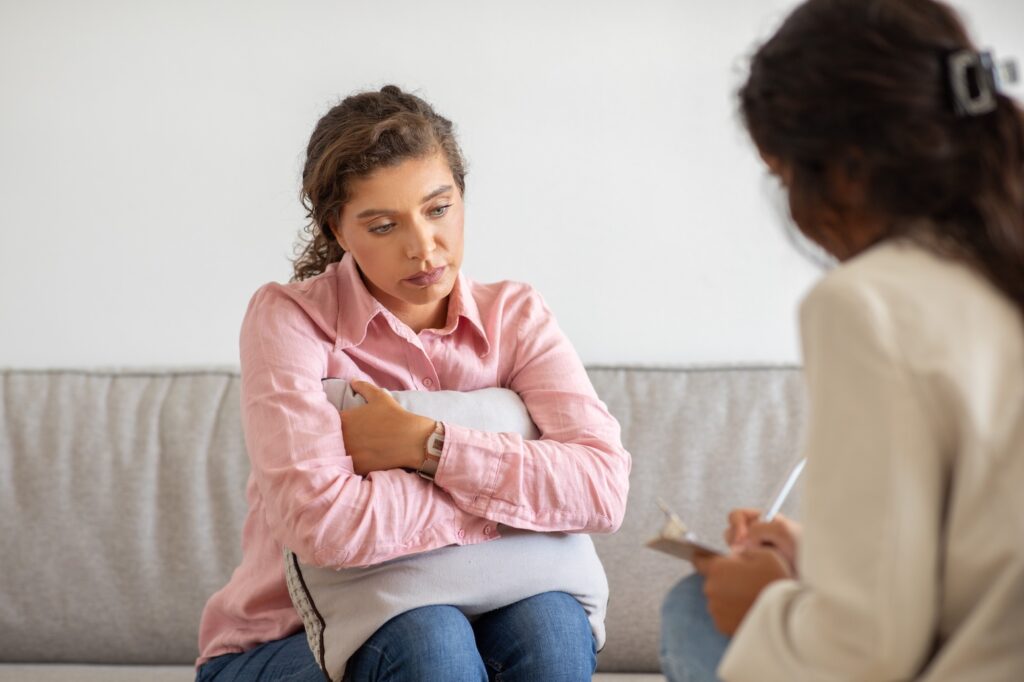Watching someone you care about struggle with their mental health can be heartbreaking. You might feel stuck, unsure what to do next, or even afraid they’ll get worse without help.
Fortunately, there are ways to get someone the support they need, even if they’re not ready to ask for it.
From knowing your options to staying supportive along the way, you can play a key role in helping them take that first step toward healing.
Can You Get Someone Mental Health Care if They Refuse?
Yes, you can help get someone mental health care if they refuse, depending on your state’s mental health services laws.
In Florida, where Mark Behavioral Health is located, the Baker Act allows doctors, judges, or law enforcement to place someone in care for up to 72 hours, followed by an evaluation.
Laws vary, so check with local human services or your state’s government health department. You can also call a crisis line or helpline for a referral.
While emergency care may be needed, recovery works best when the person feels safe, supported, and ready.
Treatment Options For Someone Who Needs Mental Health Help
Getting someone into treatment is a big step, but knowing your options helps. For serious mental health problems, tailored services like crisis care and long-term support are key.
Residential Treatment
Residential treatment is one of the most effective options for people in crisis. It provides 24-hour care in a licensed mental health facility.
At Mark Behavioral Health, patients receive personalized therapy, medication management, peer support groups, and round-the-clock supervision in a safe, structured setting.
This level of care is best for those with severe symptoms who need full-time support.
Outpatient Treatment
Outpatient care involves visiting a treatment facility for therapy or group sessions while continuing to live at home. It’s best for people who are stable but still need ongoing support, often after completing residential treatment.
While not typically used for involuntary care, outpatient programs can help individuals stay on track once they’re safe and ready for the next step.
Note: Mark Behavioral Health in Florida does not provide outpatient care, but we can refer our clients to facilities that do.
Mental Health Therapy
Mental health therapy is a key part of most treatment programs. It can help with conditions like depression, anxiety, PTSD, eating disorders, bipolar disorder, schizophrenia, and substance use disorder.
Therapists work with you to understand your thoughts and emotions, then help you build healthier patterns.
We offer CBT, DBT, trauma-focused therapy, and other evidence-based approaches to support a wide range of mental health needs.
Mental Health Medications
Medication is often paired with therapy to treat mental disorders.
Our psychiatry team offers personalized plans using antidepressants, antipsychotics, mood stabilizers, and anti-anxiety medications. These can reduce symptoms and improve well-being.
We regularly review each plan to ensure it’s working and adjust as needed. Most treatments are covered by your health insurance plan
Medication isn’t one-size-fits-all — it’s part of a broader support system tailored to each patient.
What Is the Legal Process for Getting Someone Mental Health Treatment?
The legal process for getting someone mental health treatment without their consent varies by state, but here are the basic steps:
- Recognize the signs. Look for signs of danger to self or others, or inability to manage basic needs due to mental illness.
- Contact a professional. This could be a primary care provider, mental health provider, law enforcement officer, or social worker.
- Request an evaluation. Many states require a mental health evaluation to determine if emergency care is needed.
- File a petition. Some states allow family members or caregivers to petition a judge for temporary or extended treatment.
- Follow up. Stay involved during and after treatment to offer continued support.
Mental health organizations offer education, advocacy, and support. SAMHSA, the Mental Health Services Administration, and Mental Health America are great places to start.
Local social services also provide helpful tools. These resources offer hotlines, crisis lifeline access, suicide prevention support, and up-to-date information through websites and social media.
Is Mental Health Treatment Effective for Patients Who Don’t Want Help?
Mental health treatment can help, even if someone doesn’t want it, but it’s often more effective when they choose it themselves.
People who don’t believe they need help may resist therapy, refuse medication, or stop treatment early. That’s why your support matters.
Here are a few ways you can help:
- Keep showing up with patience and care.
- Let them know they’re not alone.
- Encourage them to talk to a therapist or explore options.
- Offer to help with the process.
Sometimes, just knowing someone is in your corner makes all the difference and can help you take that first, important step toward healing.
Find Compassionate Mental Health Treatment at Mark Behavioral Health
At Mark Behavioral Health, we know how hard it is to get someone help, especially in a crisis. That’s why we offer a safe, welcoming place where healing can begin. We provide therapy, psychiatry, and support services.
Our residential programs provide 24-hour care for people with serious mental health conditions and include services like:
- Individual and group therapy
- Psychiatric care and medication support
- Family education and involvement
- Personalized treatment plans
- A peaceful, structured setting
We also support families every step of the way. If someone you love needs help, don’t wait. Reach out to us now to take the first step.

